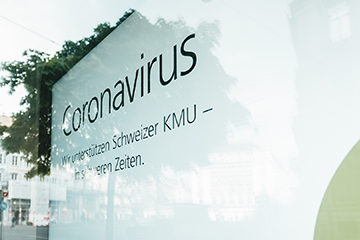Smartphone technology to help refugee children

Islamic Relief USA and the National Center for Disease Prevention from Columbia University have partnered to create a smartphone application to help refugee children in detecting mental health issues early on. (Photo by Fancycrave on Unsplash)
Seeing an opportunity to utilize smartphones already available in refugee camps, the Columbia National Center for Disease Prevention (NCDP), working in conjunction with Islamic Relief USA (IRUSA), is developing a smartphone app that can help detect Syrian refugee children who are showing mental health issues in their early stages and then prevent those mental disorders from compounding.
Katrina, a category 5 hurricane, hit the southern United States in 2005, leaving behind a path of catastrophic destruction. When the damage finally stopped, Hurricane Katrina was the deadliest storm to hit the United States in nearly 100 years, taking more than 1,800 lives, leaving cities and towns across Florida and particularly Louisiana in utter ruin.
Now, many years later, studies have evaluated the impact of the massive storm. While physical communities and cities have been rebuilt, the psychological impact of Hurricane Katrina may still live on. Many Katrina survivors, particularly children in their vulnerable development years, fell behind their peer groups in school.
“It is a distance that they cannot make up,” Jackie Ratner, senior project manager at the NCDP said in What a Relief! Podcast.
“With this, we are trying to get ahead of it. We are getting people connected to resources so that they do not fall so far behind and can catch up to their peer groups when this adversity ends.”
Research also found Katrina victims suffering from the long-lasting effects of Post Traumatic Stress Disorder (PTSD), anxiety, depression and other mental health issues. Some of the victims may suffer from these mental disorders for the rest of their lives.
Based on what psychologists learned from studying the impact on victims of traumatic events like Hurricane Katrina, it is safe to suggest that similar psychological scars will be found in victims encountering other traumatic situations.
Today many families and individuals, such as refugees, are being displaced from their homes and countries, seeking refuge from dangerous situations. These refugees have witnessed horrific events in their homeland that could hamper their psychological development. Their communities, way of life and families have been disrupted, even destroyed. Some have been forced to move to foreign countries, sometimes on the other side of the world.
Knowing what might happen to these innocent victims of unrest, scientists are looking at how technology can be used to identify and help those who are most susceptible, particularly young children.
The founder of the NCDP, Dr. Irwin Redlener, is a pediatrician and humanitarian leading a team researching the problem. In their studies, the NCDP found that many refugees receive food, shelter and life-sustaining support. However, addressing the mental situation is largely ignored. Interestingly, the NCDP also recognized that many refugees have smartphones.
“The pervasiveness of mobile technology made us think, ‘Can this be a vehicle for good? Can this be something that we can use as a tool and use our expertise and training to have an impact and help provide some information and resources?’” said Jeff Schlegelmilch, deputy director of NCDP.
The G20 Interfaith Forum supports those who are seeking to do good in the world through religion and policy, like the IRUSA and NCDP. To learn more about this project, listen to Islamic Relief USA’s official podcast “What a Relief!” episode 109, with NCDP spokespeople Jackie Ratner and Jeff Schlegelmilch, hosted by B.C. Dodge.
